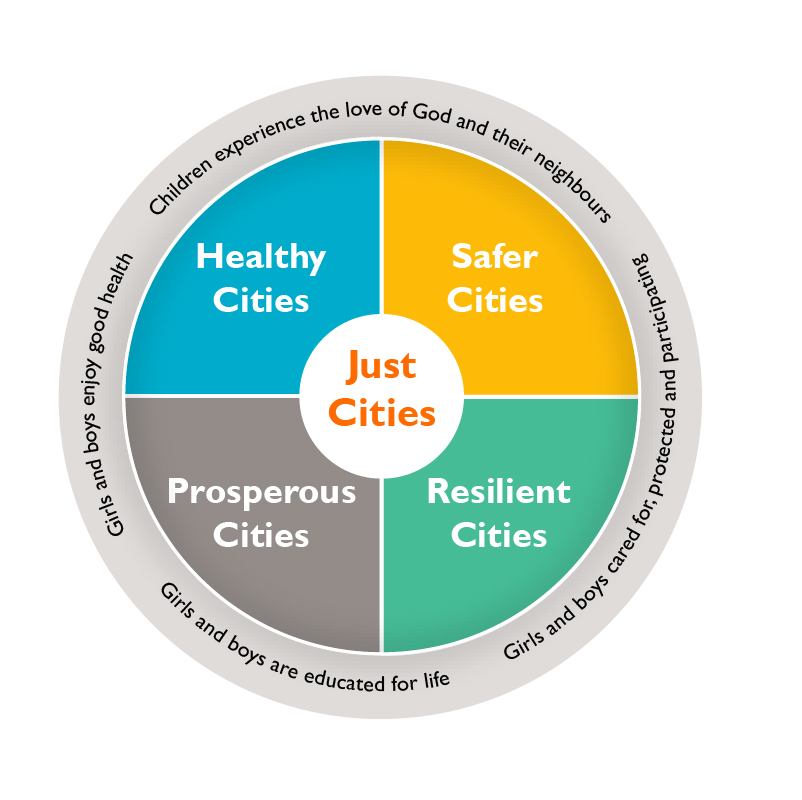
Cities for Children Framework: promoting just and inclusive cities where children thrive
Cities for Children is World Vision’s emerging framework for addressing children’s vulnerabilities in urban contexts. It is anchored in World Vision’s child wellbeing aspirations and links with tested urban approaches developed by various UN agencies.
The Framework consists of four inter-related domains of change affecting child wellbeing in cities: health, safety, resilience and prosperity. Underpinning these domains is the enabling factor of advocacy to seek justice and inclusion of the most vulnerable through policy change.
Each of the four domains identifies an aspirational goal to address unique issues of the city:
- Safer Cities: To ensure that children and their families live in a safe and protected environment, free from violence, abuse, exploitation and harm.
- Healthy Cities: To strengthen availability of and access to public health services and contribute to healthy urban environments where children thrive.
- Prosperous Cities: To create an enabling environment for overall livability focusing on inclusive education, pro-poor employment, local asset building and greater economic productivity for youth.
- Resilient Cities: To ensure children and their families are prepared to respond to, recover and rebuild from urban shocks, stressors and vulnerabilities.
The Framework identifies critical strategic pillars and enablers of change common to all domains that are essential for sustainable development in urban settings.
- Strategic pillars: Social Cohesion, Urban Governance, Knowledge Building, and Built Environment.
- Enablers of Change: Partnerships, Technology, Urban Planning and Design, and Urban Policy

Read the Cities for Children Summaries:




